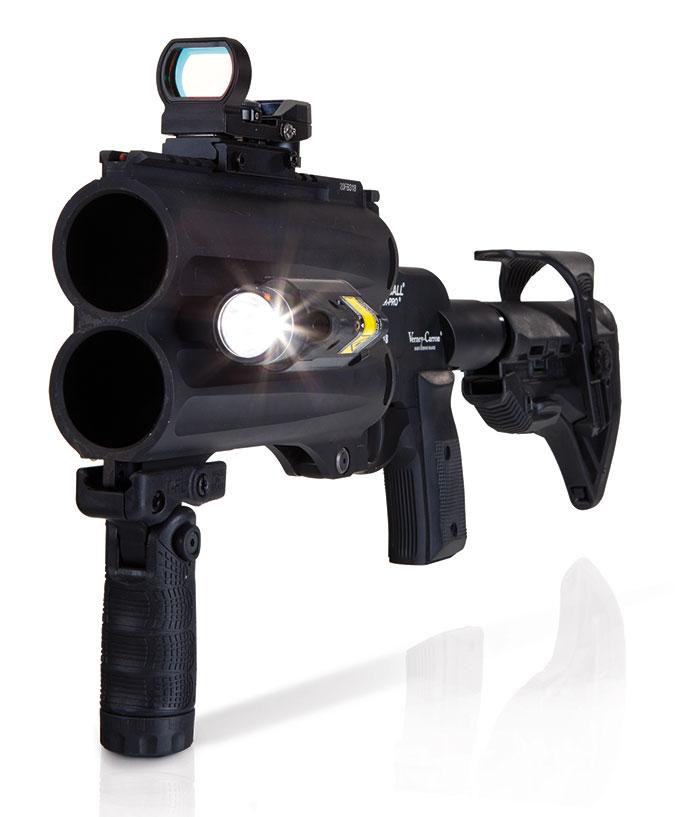Table of Contents
- Legal Status and Regulatory Variations of Pepper Spray Across Asian Countries
- Cultural and Political Factors Influencing Non-Lethal Weapon Policies in Asia
- Effectiveness and Ethical Considerations of Pepper Spray in Law Enforcement
- Best Practices and Recommendations for Responsible Use of Pepper Spray in the Region
- In Conclusion
Legal Status and Regulatory Variations of Pepper Spray Across Asian Countries
Across Asia, the legal landscape surrounding pepper spray varies widely, reflecting each country’s unique approach to personal defense and public safety. In nations like Japan and South Korea, strict regulations often prohibit civilian possession or impose tight controls, effectively limiting accessibility to pepper spray. Conversely, countries such as India and the Philippines provide conditional legal frameworks enabling individuals to carry pepper spray primarily for self-defense, though documentation and age restrictions often apply. These discrepancies are influenced by differing cultural attitudes toward non-lethal weapons as well as the balance governments seek between empowering citizens and preventing misuse.
Key regulatory themes common across various Asian jurisdictions include:
- Licensing Requirements: Some countries require permits or registrations to purchase and carry pepper spray legally.
- Usage Restrictions: Limits on how and where pepper spray can be used to prevent abuse or accidents.
- Concentration Limits: Regulations on the chemical potency to ensure non-lethal effectiveness without causing permanent harm.
- Age Barriers: Minimum age thresholds set to reduce risks among younger populations.
Understanding these nuances is crucial for travelers, expatriates, and locals alike who consider pepper spray as a tool for personal safety in Asia’s complex legal environment.
Cultural and Political Factors Influencing Non-Lethal Weapon Policies in Asia
In Asia, the regulation of non-lethal weapons like pepper spray cannot be fully understood without considering the rich tapestry of cultural values and political landscapes that shape public safety policies. Many Asian societies place a high premium on social harmony and collective well-being, which often translates into a cautious approach toward civilian access to any type of weaponry-even those categorized as non-lethal. Traditional norms in countries like Japan and South Korea emphasize restraint and conflict avoidance, leading to strict limitations or outright bans on pepper spray for personal use. Meanwhile, in other regions, historical experiences with civil unrest or authoritarian governance have influenced governments to impose stringent controls, viewing such weapons through the lens of potential misuse or escalation.
Political factors are equally pivotal. In many Asian countries, law enforcement agencies maintain significant authority over weapon regulations, frequently prioritizing state security concerns over individual self-defense rights. This results in diverse policy frameworks that can include:
- Government monopoly on weapon distribution, restricting pepper spray sales to law enforcement or licensed entities.
- Strict licensing requirements that limit civilian possession or mandate mandatory training.
- Cultural stigmatization, where carrying such items may be perceived negatively or associated with criminality.
Effectiveness and Ethical Considerations of Pepper Spray in Law Enforcement
Pepper spray has gained widespread recognition as an effective tool in de-escalating potentially violent encounters without resorting to lethal force. Its rapid incapacitating effects-primarily inducing temporary blindness, respiratory discomfort, and intense irritation-ensure that law enforcement can subdue suspects quickly while minimizing long-term harm. Many agencies report improvements in officer safety and reductions in the need for physical confrontation when pepper spray is employed properly. The convenience of its portability and ease of use also contribute to its popularity among police forces globally.
However, the deployment of pepper spray raises significant ethical questions that must be carefully navigated. Concerns focus on the potential for misuse, excessive application, and its impact on vulnerable populations, such as individuals with asthma or other respiratory conditions. Ethical law enforcement practices emphasize the importance of stringent guidelines, training, and accountability to prevent abuse. Key ethical considerations include:
- Proportionality: Using pepper spray only when necessary and in proportion to the threat posed.
- Non-discrimination: Avoiding targeting or disproportionately affecting marginalized groups.
- Transparency: Maintaining clear records and justifications for its use to uphold public trust.
- Health Risks Management: Awareness of possible adverse reactions and ensuring medical support is available.
Best Practices and Recommendations for Responsible Use of Pepper Spray in the Region
When handling pepper spray, adhering to legal regulations specific to your country is paramount, as restrictions and permitted usage vary widely across Asia. Users should prioritize safety by ensuring the spray is kept in a secure, easily accessible place and stored away from children. It’s equally important to receive proper training or familiarize oneself with the device’s operation to avoid accidental harm. Using pepper spray only in legitimate self-defense situations helps maintain responsible ownership and reduces the risk of legal complications.
Consider these key guidelines to promote responsible use:
- Check expiration dates regularly to ensure effectiveness.
- Aim for the attacker’s face while maintaining a safe distance of at least 1.5 meters.
- Avoid use in confined spaces to prevent self-exposure.
- Report incidents to authorities immediately after use.
- Respect local laws that may require permits or restrict carrying pepper spray in public.
In Conclusion
In conclusion, while non-lethal weapons such as pepper spray are subject to varying regulations across Asia, they are generally not outright banned but often tightly controlled. Understanding the specific laws and restrictions in each country is crucial for responsible use and possession. As awareness about personal safety grows, so too does the discourse on balancing security with legal boundaries. Staying informed ensures that individuals can protect themselves effectively while respecting the legal frameworks in place throughout the region.Check Our Other Blogs
- StunGun – Your Trusted Source for Stun Guns, Laws, and Self-Defense Tips
- PepperSprayLaws – Your Trusted Resource for Pepper Spray Information
- StunGunLaws – Your Trusted Guide to Stun Gun Legality and Safety




